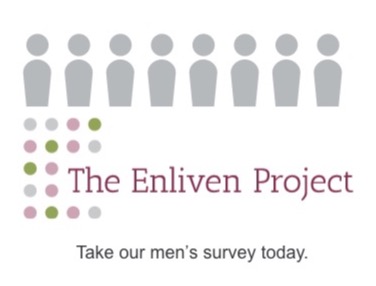Hearing a story about sexual assault can make you feel really powerless. Maybe you read my story here or heard a story at a Take Back the Night, and you felt moved, a little astounded to hear the words spoken out loud, supportive but a little lost.
Sexual assault is a crime of power and an assault on humanity that most people cannot bear witness to on a daily basis. So we push it to the back of our minds in lots of different ways, finding ways to separate ourselves from victims, thinking that there must be something different about them. And we go about with our daily lives.
The truth is that we all encounter sexual assault - or at least its aftermath - on a daily basis. If you talked to 4 women or 6 men today, chances are that one of them has experienced sexual assault. If you are not actively participating in ending sexual violence, you are a complicit bystander. It’s that simple. The shame around sexual violence breeds on silence.
I’m not suggesting that people don’t care. I’m suggesting that it’s hard to care and not know what to do. That’s why I made a list of five things you can do TODAY to turn the tide against rape.
1. Educate yourself.
Learn the facts about sexual violence. Did you know that most assaults are committed by someone you know? Did you know that a sizable majority of assaults take place before the age of 18? Only 46% of assaults are reported to the police, and of those, less than 10% are prosecuted and lead to a felony conviction? Did you know that there is a societal cost to sexual violence and that if we spent a little more on prevention, we’d spend a lot less on recovery?
Here are some places you can learn more, and you can start today:
RAINN (Rape and Incest National Network)
NSVRC (National Sexual Violence Resource Center)
BARCC (Boston Area Rape Crisis Center)
Jane Doe Inc
2. Break the silence.
You don’t have to tell your story. You don’t have to have a story to tell. Rape isn’t an issue that belongs to survivors - it belongs to all of us. Share your story as a partner, teacher, boyfriend, brother, or parent to someone who was sexually assaulted. Heck, share my story. Tell someone you read my blog and it made you think how we ought to spend more time talking about sexual assault.
Go ahead, tell 10 people today that you have been thinking about the implications of sexual assault and what you can do about it. Let your network know that you are willing to speak out and willing to listen.
3. Be a willing listener.
There are lots of ways to let people know you are willing to listen. See above for the biggest one - breaking the silence.
But the other thing you can do is pay attention. Maybe a friend will hint at a dark relationship, a fear of sex or intimacy, or reference to something “messed up” that happened a long time ago. Instead of glossing it over or letting it drop, ask a follow up question or say, “hey, if you ever want to talk about that, I’m here.”
There are other ways to be inviting to others who haven’t yet found the strength or courage to speak about their own experiences. You can talk about the stories you hear, the statistics you learn, and the organizations you support and say, “I never realized sexual assault was so common. If something like that has happened or happens to you, I hope you know I’d always be willing to listen.”
And when someone does come to you, make sure you have something to say.
4. Advocate for change.
Once you learn the facts, you will probably get really mad. But don’t despair! There are lots of organizations working to create policy and systems change, and this kind of change can help hundreds or thousands of people. Whether you feel passionate about prevention, treating perpetrators, educating the community, or providing high quality services to survivors, find a way to share that message at the systemic level and not just with a single person or community. Get comfortable signing petitions, writing letters, calling your elected officials, or attending advocacy events and meetings. This is the system working at its best, and it only functions well if all citizens get vocally involved. The next time an elected official goes to vote for or against a policy that will help the fight against sexual violence, you want them thinking about the story you told them and remembering the passion and fire in your face. This goes for survivors and non survivors - you don’t have to be a survivor to talk about the impact of quality prevention initiatives and services.
5. Give.
Give money. Give time. Ideally, give both. Every minute and every dollar counts. Big organizational funders shy away from funding sexual assault. I once did a search in a database of thousands of funders and came back with only a handful that used rape or sexual assault as a key word. You can train to be a rape crisis center volunteer and accompany survivors through the medical or legal systems. You can take hotline calls. You can participate in fundraising walks or events. There is so much you can do. Just start somewhere. And then it becomes something you can talk about - which makes it easier to break the silence and listen - a virtuous cycle!
Please, share this post, and ask your friends what 5 things they have done today to end rape.







[…] Learn 5 things you can do about rape >> […]
Marc Beaulieu liked this on Facebook.
RT @sarahbeaulieu: Think rape sucks? Here are 5 things you can do about it.: http://t.co/FR0MKV7W
Barbara Hawks Stark liked this on Facebook.